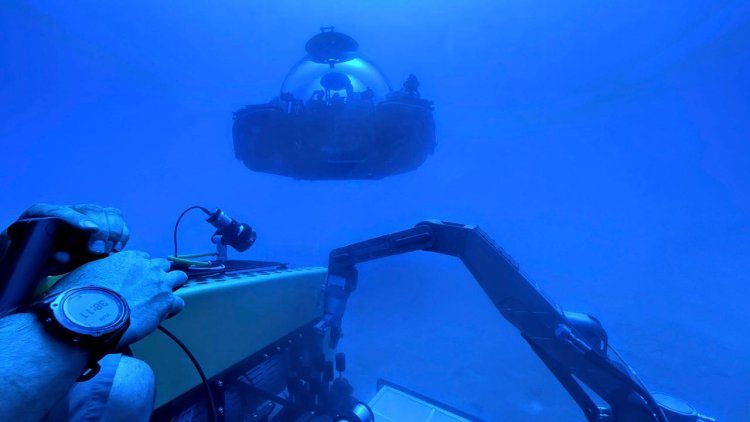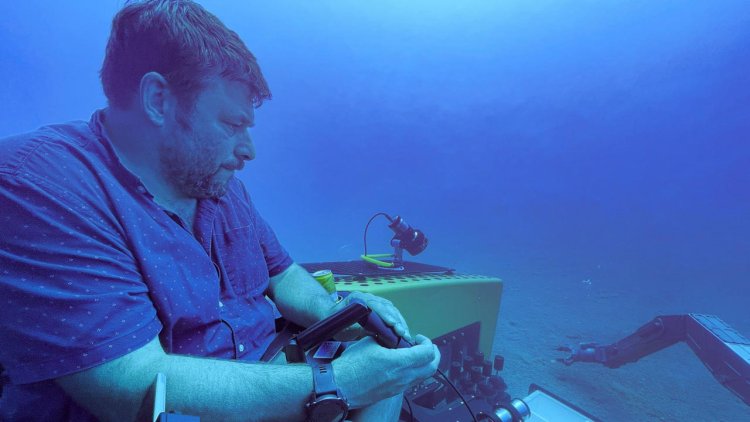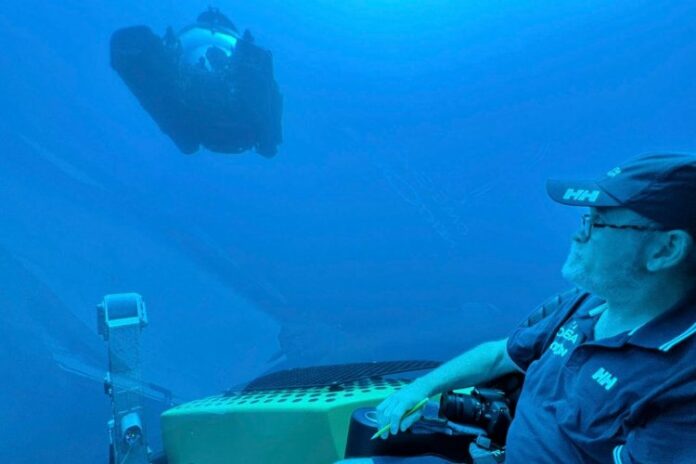From October 10 -22 REV Ocean and OCEEF (The Ocean Conservation Exploration and Education Foundation) lead the first deep-sea science mission to explore one of the most remote and least visited places on the planet, the Chagos archipelago, in the British Indian Ocean Territory (BIOT). The expedition will also be supported by Triton Submarines, Teledyne Marine and Nekton.
The 12-member mission team will conduct daily dives from 100 m to at least 500 m deep in two Triton submersibles to document the seafloor and fish communities at three locations in the archipelago. Special attention will also be paid to describing human impacts on the ecosystem and to surveying habitats likely to harbour the rarely observed coelacanth, a fish nearly considered a “living fossil”.
The mission is led by REV Ocean chief scientist Prof. Alex Rogers and includes a diverse international team of experts including 4 Ph.D. students who will participate in daily dives in the subs. Other scientists come from the University of Oxford, University of Plymouth and Bangor University in the United Kingdom. Five REV Ocean specialists will join the mission and work closely with OCEEF’s team to support the new 2300 m depth-rated submersible Aurelia aboard the research vessel Odyssey.

The expedition will use the REV Ocean submersible Aurelia, which is capable of diving to 2300 m. Aurelia is fitted with state-of-the-art scientific sensors, cameras, and sampling equipment which provides the science community with unique opportunities to explore and sample deep ocean ecosystems.
Alex Rogers said:
“The Chagos Archipelago is one of the world’s largest marine protected areas, yet only shallow waters have been explored by scientists in detail. It is still the case that 95% of the waters of the archipelago are unexplored and most of these are in the deep sea. Using cutting-edge submersible technology, including the world’s deepest diving submersible with an acrylic sphere, we will survey the waters surrounding the islands of the archipelago including submarine slopes and cliffs. I am really looking forward to seeing what life occurs in the deep around Chagos.”
The Chagos research sites have been selected on the basis of past shallow-water ecological studies and monitoring (Peros Banos and Eagle Islands) with one representing exploration of a submerged atoll (Pitt Bank).
The mission also provides opportunities for early career scientists to join, which is a key component of REV Ocean owner, Kjell Inge Røkke’s, commitment as a UN Patron of the Ocean Decade Alliance and the UN Ocean Decade Special Emissary for Industrial Ocean Data.

Nina Jensen, CEO of REV Ocean, said:
“I am thrilled that our team is getting to use Aurelia to improve our understanding of one of the least explored parts of the world. We hope this contributes to finding the best-suited opportunities and solutions to support a healthy ocean locally and globally. OCEEF’s research vessel Odyssey is ideally suited for supporting such specialized missions and we have shared goals for ocean science, exploration, education and conservation.”
Aurelia will collect large quantities of data on marine life, which will be shared openly in the Ocean Data Platform, hosted by HUB Ocean, as well as being distributed to relevant global databases such as the Ocean Biodiversity Information System (OBIS) for recording observations of marine life.
Important data will be gathered that documents change in seafloor and fish community structure with depth and will likely include undocumented species of corals, fish and seaweeds. The work will assist the region to manage its marine environment and enable scientists to obtain training in deep-water ecology and conservation management.
The Chagos expedition continues on from Nekton Mission in the Maldives which took place from 4th September to 7th October. The Nekton work is the first systematic discovery and documentation of ocean life in the Maldives from the surface down to 1000 metres.



